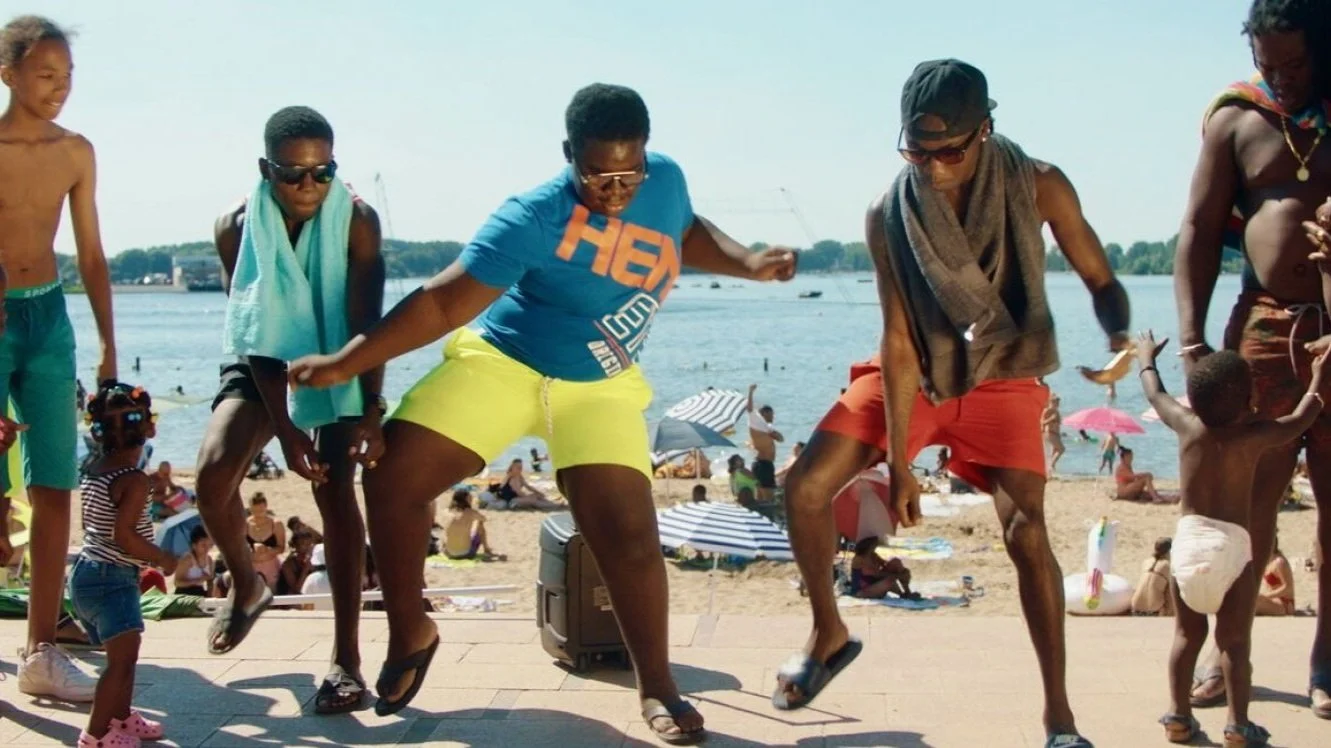Shabu
A fourteen-year-old from Rotterdam seeks to make his mark in music.
Courtesy of T A P E Collective
This is the first time that I have seen a film by the Dutch-Caribbean filmmaker Shamira Raphaëla although over the past decade or so she has made her name in the documentary field including much done for television. But, whatever the nature of her other work, Shabu is very much its own thing. Despite being marketed as a documentary (which in essence it is), it actually plays like a piece with strong appeal for viewers – younger ones especially – who would normally steer clear of the genre.
Shabu is set in Rotterdam and features life there on the Peperklip housing estate which is notable for the variety of cultural backgrounds amongst those who live in its flats. Central to Raphaëla’s film is 14-year-old Shabu who lives in the hood with his mother and dreams of one day becoming famous through performing songs. He divides his spare time between developing his music, roaming around with his best friend Jahnoa and enjoying the company of a girlfriend, Stephany. Nevertheless, it is the extent to which music absorbs him that stands out here. Of the human relationships it is actually that which he shares with his grandmother that carries the deepest feeling and this makes the film’s final shot entirely apt.
Raphaëla’s film may portray Shabu’s everyday life but it also has a clear storyline. When we first meet Shabu, he is in trouble. While his grandmother is away in Suriname, he has crashed her car which he was driving illegally and is now challenged to earn enough money to pay the consequent fines. He tries various jobs to help but then puts his main hope in staging a performance locally for which he can charge. In an echo of numerous ancient Hollywood musicals, this movie is all about putting on a show which will then provide the climax to the film. If judged as a standard documentary, Shabu would be decidedly light-weight (one scene of blood in a lift illustrates the violence that can occur on the estate but this is not really at heart a social study). However, considered as lively entertainment, the film works extremely well. Indeed, the song that is touched on enough to become a refrain is ‘Everything's Gonna Be Alright’ and that sets the tone.
Two factors are key to the success of Shabu and one of these is Shabu himself. He has a thoroughly engaging personality, one that lights up the screen. Like the others seen here, he is not acting out a role but is appearing as himself. Consequently, he might well not have the ability to portray a fictional character but, even so, in this context he has star quality. The other crucial feature is Raphaëla's decision to create a film that is shot and edited exactly like a fictional piece, thus giving it energy and pace that involve and engage us throughout. The look of the film suggests that many scenes were probably set up for the camera, but in this context that is no drawback. That there is no commentary feels entirely apt and Raphaëla' s approach is further justified by the style which she adopts being entirely in keeping with the prominent role that music plays in the movie. Both the actual songs heard and Michael Varekamp’s background score add to the satisfying sense of this being a film that is suitably charged up. Wisely limited to 75 minutes, Shabu is indeed a small work, but it certainly confirms that documentary cinema can be as lively as any tale told with actors.
MANSEL STIMPSON
Featuring Shabu, Jahnoa, Stephany.
Dir Shamira Raphaëla, Pro Nienke Korthof and Willem Baptist, Screenplay Shamira Raphaëla, Ph Rogier Timmermans, Jefrim Rothuizen, Jurgen Lisse and Gregg Telussa, Ed David Verdurme and Lykle Tuinstra, Music Michael Varekamp.
Tangerine Tree/Diplodokus/Humanistische Omroep Stitchting (HUMAN)-T A P E Collective.
75 mins. The Netherlands/Belgium. 2021. US Rel: April 2023. UK Rel: 7 July 2023 Cert. 12A.


